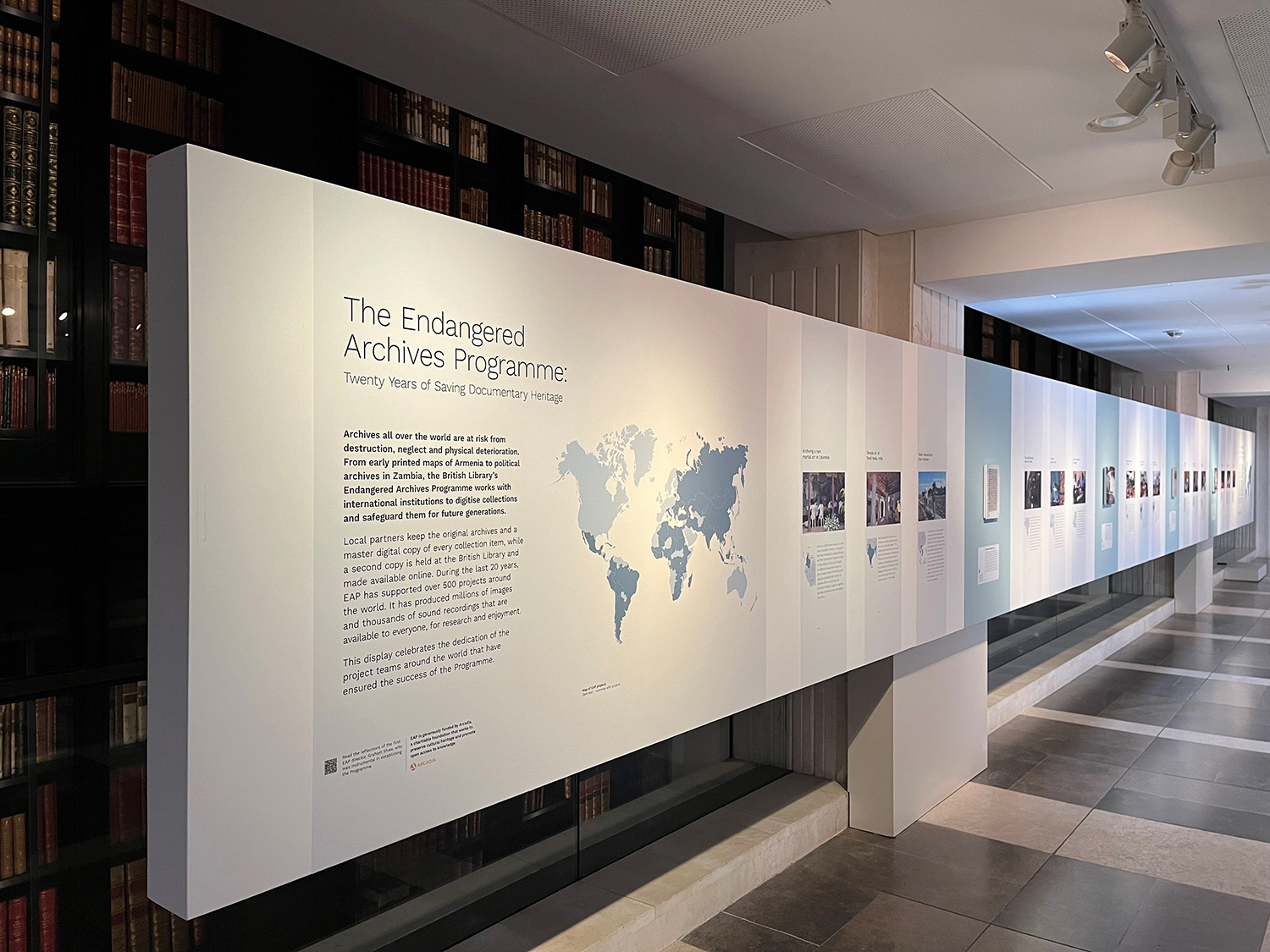A new display has opened at the British Library featuring the work of a University of Worcester historian and her team to preserve archives of global importance to the history of slavery.
Professor of History, Suzanne Schwarz, has been leading a team digitising endangered documents held at Freetown, Sierra Leone, in West Africa.
Thanks to her work, in collaboration with the archival team at the Sierra Leone Public Archives, these records will be preserved in digital format for future generations and are already shedding light on the lives of those released from slavery.
The project is one of 15 funded by the Endangered Archives Programme (EAP), run by the British Library, that are now on display at the London-based library, in celebration of the EAP’s 20th anniversary, until February 2025.
Professor Schwarz explained how, after British abolition of the trade in 1807, Britain sent out Royal Navy ships to intercept slave ships and as a result of that activity an estimated 100,000 enslaved Africans were disembarked at Freetown, where their details were recorded in registers.
“This work is of global significance to the history of slavery,” she said. “As the intercepted slave ships carried people from across parts of West Africa and East Africa, a diverse multi-ethnic community developed in the British Crown colony at Freetown. The significance of the evidence we’re digitising is that it reveals information on the people originally intended for enslavement in the Americas. Even though Royal Navy ships released only a small proportion of those transported in the trade in the 19th century, we can still learn more about the people uprooted and displaced in the transatlantic slave trade.”
Since 2010, a series of funded projects have been digitising these records while also examining them in more depth. Professor Schwarz is Principal Investigator on the current project, and two of the University’s PhD students have also been involved.
Professor Schwarz said over the years the archives had suffered from damp and humidity, putting the documents in a perilous state. Through the EAP initiative, it has been possible to provide specialist training and equipment for Sierra Leonean archivists to undertake the digitisation of the source material. The growing collection of digital material is freely available through the EAP website (eap.bl.uk) and local archival partners.
Registers of Liberated Africans started to be kept in Sierra Leone in 1808. They include the African names of those released together with details of their estimated age, height, sex and aspects of their physical appearance.
“The names are particularly significant,” said Professor Schwarz. “Historians estimate that about 12.5 million Africans were transported in the slave trade between the 16th and 19th centuries. Of these individuals we have names for approximately 200,000 released from intercepted vessels. For most of those transported, their identities are currently unknown. It’s these registers that give us some insight into their names, identities and origins.”
Professor Schwarz said although some similar registers are held in the National Archives at Kew in London, the Sierra Leone records are particularly important as they include the very first groups of enslaved Africans released in 1808.


